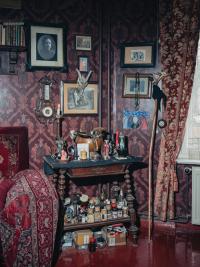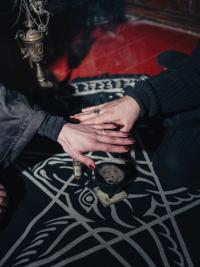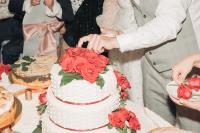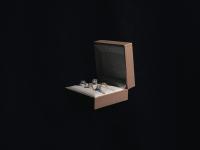Subscribe to the Newsletter
Your cart is empty
Shop now













Der Greif X FUTURES: Q&A with Greif Alumni Lea Greub on the "business of love"
Exploring the intersection of love and money with Lea Greub
We periodically invite our alumni, artists we have featured in the past, to share their new work and projects with us. We first featured Lea Greub’s work in our Guest Room curated by Daniel Boetker-Smith and Tanvi Mishra on the theme "(make) belief" in October 2023. We discovered Greub's photographic essay series, "The Business of Love" through FUTURES, for which she was nominated by the Triennial of Photography/Deichtorhallen in 2024.
FUTURES is a Europe-based photography platform bringing together the global photography community to support and nurture the professional development of emerging artists across the world.
Greub is a Berlin-based photojournalist whose work focuses on socio-cultural issues, marginalized communities, and European politics. Her most recent photographic essay series "The Business of Love" explores the complex connection between love, money and society's expectations of relationships. The work explores how the pursuit of love, or the desire to give value to relationships, entices people to spend significant sums of money.
Francesca Hummler: “The Business of Love” examines the intersection of love, money, and societal expectations. What initially drew you to this theme, and how did the project take shape?
Lea Greub: The idea for “The Business of Love” came to me last summer while photographing a wedding. The couple had spent an enormous amount of money, and I found myself thinking of love as a massive industry. That led me to another question: “Who actually profits from it?”
FH: Your photo series traverses a variety of settings, from wedding fairs to matchmaking festivals. Was there a particular location or event that stood out to you as especially memorable or unexpected?
LG: One of my most fascinating encounters was with a magician named Görres, who offers love spells – or at least, that’s how Georg “Görres” Holst promotes his services on his website and YouTube channel. Along with personal rituals, voodoo, and protective spells, Görres also offers a range of love spells. I’m less interested in whether his methods work or whether he’s a fraud. What intrigues me far more are the hopes and desires that drive people to seek his help.
FH: Your work captures both those searching for love and those profiting from it. How do you navigate these contrasting perspectives with sensitivity, and how did you build trust with your subjects?
LG: Before photographing someone, I usually conduct an interview to establish a connection and build trust. I believe I avoid stigmatization by genuinely seeking to understand the emotions and needs driving their actions. My goal is not to expose them but to portray them with honesty and empathy.














FH: Do you view the commodification of love as inherently problematic, or does your work also reveal positive aspects of the commercialization of relationships?
LG: Personally, I find any form of commercialization problematic. However, I recognize that it can have certain positive aspects. For instance, dating apps can be particularly beneficial for queer communities, offering greater visibility and easier access to like-minded individuals. Likewise, speed dating events provide opportunities for those who struggle to meet new people. What I find troubling is the waste of resources, the production of meaningless kitsch, or the exploitation of people’s hopes for love purely for profit.
FH: Love and photography both contain elements of performance. How do you capture authenticity in settings like wedding fairs or speed-dating events, where people are often presenting an idealized version of themselves?
LG: I believe the simplest way to capture authenticity is to spend enough time on-site until people either become accustomed to my presence or grow tired of maintaining a posed facade. By allowing moments to unfold naturally, I can observe the subtle shifts when individuals let their guard down, revealing more genuine expressions and interactions.
FH: How do you think photography contributes to the commodification of love or shapes the way people perceive love and their relationships?
LG: Photography plays a role in the commodification of love by capturing idealized moments that are widely shared and consumed, influencing how romance is perceived. It often fosters unrealistic expectations by presenting "perfect" versions of relationships, particularly on social media. However, photography also has the power to reveal the raw, unfiltered aspects of love, offering a more nuanced and complex perspective beyond the polished images.